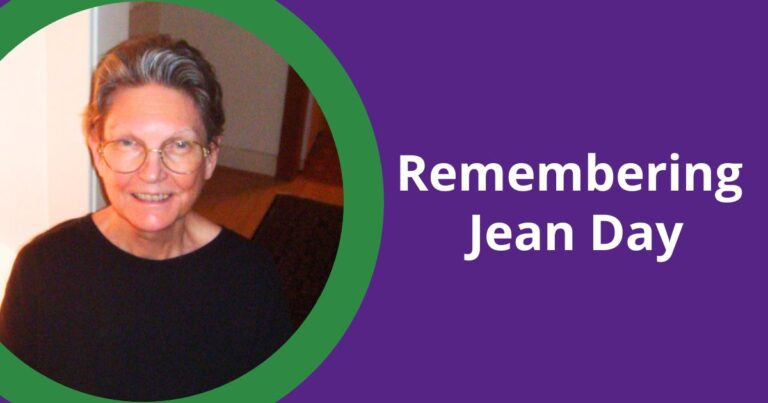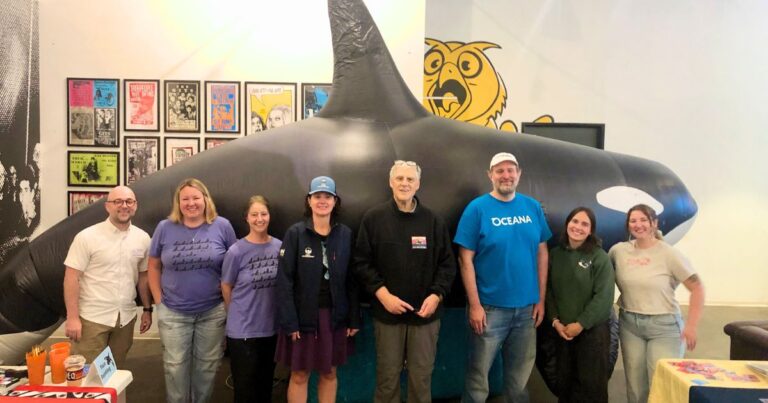It’s crystal clear now that PFAS (per- and polyfluorinated alkyl substances) are bad-actor chemicals that need to be eliminated. But with federal action slow and inadequate, it’s up to states like Washington to step out and show how we can turn off the tap, stopping PFAS at the source and cleaning up contamination. The Department of Ecology’s (Ecology) current draft chemical action plan (CAP) to address PFAS falls short by taking too long to take action on important PFAS sources and it is not comprehensive enough to end the PFAS contamination crisis. But we have a chance to improve it now with strong public support.
Turning off the tap on PFAS is especially important as we confront COVID-19: among the most alarming impacts of PFAS contamination are its weakening effect on our immune systems and links to chronic diseases that make people more vulnerable to COVID-19.
Swifter actions to end all uses of PFAS are critical.
While President-elect Joe Biden has put forward an environmental justice plan that includes a pledge to enact a drinking water standard for PFAS and designate PFAS as hazardous substances under the Superfund cleanup law, federal action will not help Washingtonians soon enough and isn’t adequate to stop PFAS pollution.
The largest exposures and sources we face are from products. The CAP identifies many uses in products, such as food packaging, carpets, textiles, waterproof apparel, firefighting foam and gear, personal care products and many household and office products we use every day. Our state legislature has adopted ground-breaking bans on PFAS, as a class, in food packaging and firefighting foam, and the agency has started to take action on additional products. However, this draft plan by Ecology falls short. It won’t even consider many products until 2025—products we use and are exposed to every day such as raincoats, apparel, cleaning products, wood and stone sealers, floor polishes and personal care products.
Washington has a chance here to continue to demonstrate national leadership and create a model for other states and the nation, as it has done on challenging toxic pollution issues for more than a decade. While we applaud the state for many of the actions recommended in the CAP, it fails to fully utilize the state’s existing regulatory authority, set aggressive but feasible timelines for action, and invest in needed solutions.
The good news is that there are solutions and we have a chance to convince Ecology to strengthen this plan.
We are asking Ecology to adopt the following recommendations, and we’re asking our friends to help. Comments are due January 4, 2021 and we’re hopeful that if we all speak up, Ecology will listen.
- Identify safer alternatives and ban uses of PFAS beginning in 2025. PFAS prevention is critical and the best way to accomplish this is to stop the use in products. The CAP identifies carpet, residential upholstery, apparel, cleaning agents, floor waxes and stone/wood sealers, and waterproofing agents/aftermarket treatments as significant sources of PFAS in the home. However, Ecology is currently moving forward only on PFAS in carpet, leather and textile furnishings, and aftermarket treatments as part of the implementation of the 2019 Safer Products for Washington Act. Ecology should adhere to its own conclusions in the draft CAP to reduce the largest sources of PFAS by immediately declaring apparel (including firefighter personal protective equipment), cleaning products, floor waxes and stone/wood sealers, and personal care products as priority products so that the search for safer alternatives begins now and bans can be put in place by 2025.
- Immediately designate the entire class of PFAS chemicals as hazardous substances under the Model Toxics Control Act; adopt cleanup standards for all PFAS in 2021; and subject PFAS to the hazardous substance tax. Neither state nor federal law recognizes PFAS as hazardous substances despite the known harm to human health and the widespread drinking water contamination that has occurred. With approximately 5,000 different types of PFAS chemicals available for use, and PFAS contamination impacting drinking water for millions of people across the country, this is a critical step to ensure polluters pay to clean up contamination and drinking water in communities. Cleanup standards should be adopted in 2021. In addition, PFAS continues to enter the state for use by several industries; the hazardous substance tax should be collected for PFAS chemicals in products coming into Washington.
- Speed up timelines for dealing with PFAS contamination. It’s not acceptable for any community to suffer health, economic or other negative consequences while the chemical industry continues to reap huge profits, and frontline communities in Washington must be prioritized for PFAS cleanups under MTCA. Communities in Washington state such as Coupeville and Airway Heights have suffered enough from PFAS contamination and new contamination in the state continues to be identified. An ambitious timeline must be established to identify and clean up toxic sites beginning in 2021. The longer the state waits, the bigger the harm to human health and the environment, and the bigger the cost to the state.
- Pursue immediate testing of sludge (biosolids) and develop standards for all PFAS. Sludge from municipal treatment plants should be tested for PFAS chemicals, beginning with biosolids applied to dairy and other farms in our state. Farms and other lands where biosolids have been applied should also be tested. Maine has carried out sludge testing and established restrictions. Alternative disposal methods should be investigated to keep PFAS off of farms and other lands. These actions are vital to prevent continual recontamination of our food and bodies with PFAS.
- Adopt strong drinking water standards in 2021 for all PFAS and expand testing to identify Washington drinking water systems contaminated with PFAS. The Department of Health is currently in the process of establishing standards for PFAS in drinking water, which are set to be finalized in 2021. Setting standards for all PFAS is the only way to ensure that Washingtonians have access to safe drinking water. The state must provide more testing of drinking water supplies across the state as the full extent of the problem has not yet been determined.
- Ensure safe disposal of PFAS-containing products. Washington state has one solid waste incinerator, in Spokane, and along with other solid waste it burns PFAS-containing wastes such as food packaging, furniture, and carpet. There is no recognition of this in the CAP. Available evidence suggests that incineration does not effectively destroy persistent PFAS chemicals but can result in dispersion and deposition of the chemicals to land and water. In addition, other wastes may be exported for incineration. Washington state should not allow the burning of PFAS wastes and should pursue the safest storage or disposal options.





